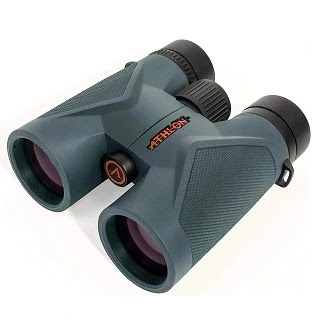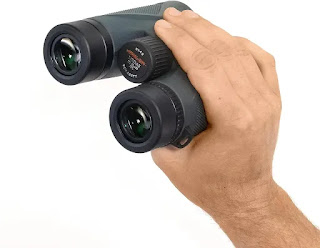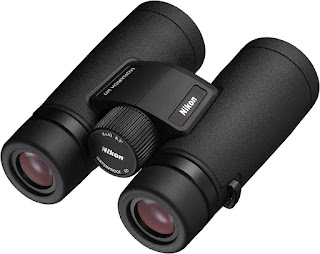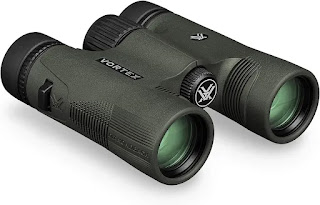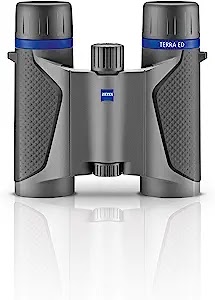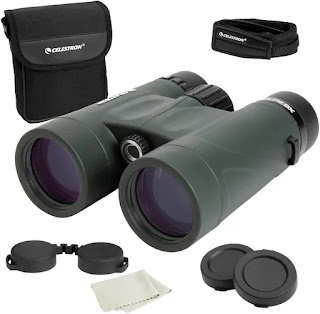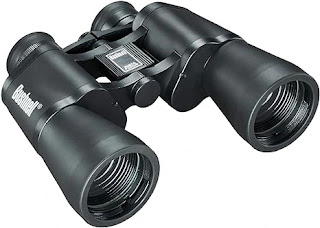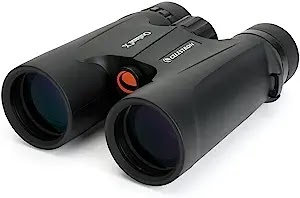Bird watching is a delightful hobby that connects us with nature's beauty and offers a tranquil escape from our daily routines. To enhance your birding experience, investing in a good pair of binoculars is essential.
However, with a plethora of options available, how do you choose the best binoculars for bird watching? In this guide, we will explore the top binoculars on the market, helping you make an informed decision and elevate your bird watching adventures.
Understanding the Basics
Why Binoculars Are Essential for Bird Watching
Birdwatching is a captivating and rewarding hobby that relies heavily on the use of binoculars. In this section, we will explore the reasons why binoculars are indispensable for bird watching and how they can significantly enhance your birding experience.
Importance of Binoculars in Bird Watching
Binoculars bring distant birds up close: Birds are often perched high in trees or soaring in the sky, making it challenging to observe their intricate details with the naked eye alone. Binoculars provide the magnification needed to clearly see the plumage, markings, and behavior of birds from a distance.
How Binoculars Enhance Your Birding Experience
Enhanced Detail and Clarity: Binoculars offer sharper and more detailed views of birds, allowing you to identify species accurately and appreciate their unique features.
Extended Observation Range: With binoculars, you can spot birds in their natural habitats without disturbing them, making it easier to study their behaviors and interactions.
Reduced Eye Strain: Binoculars reduce the need to squint or strain your eyes, enabling longer and more comfortable birdwatching sessions.
Immersive Experience: Binoculars immerse you in the world of birds, enabling you to observe their natural behaviors, nesting habits, and feeding patterns with precision.
Key Features to Consider
When choosing binoculars for bird watching, several key features should be taken into account. These features can significantly impact your birding experience, ensuring that you have the right tools for the job.
Magnification and Objective Lens Size
Magnification: Binoculars are often labelled with two numbers (e.g., 8x42), where the first number represents magnification. Higher magnification (e.g., 10x) allows for closer views of distant birds but may result in a narrower field of view.
Objective Lens Size: The second number on the label (e.g., 8x42) indicates the diameter of the objective lenses in millimetres. Larger objective lenses gather more light, providing brighter images, especially in low-light conditions.
Field of View
Field of view (FOV) is the width of the area you can see through the binoculars at a specific distance. A wider FOV is advantageous for tracking birds in flight and for locating birds in dense foliage.
Close Focus Distance
Close focus distance refers to how close you can bring the binoculars to an object and still achieve a sharp focus. Birdwatchers often encounter birds at various distances, so a short, close-focus distance is beneficial for observing nearby birds.
Image Stabilization
Some binoculars offer image stabilization technology, which reduces hand tremors and vibrations. This feature can be especially helpful when observing birds at high magnifications or without a tripod.
Top Binoculars for Bird Watching
We will explore some of the top binoculars for bird watching, each with its own unique set of specifications, features, pros, and cons. Additionally, we will provide user reviews and ratings to help you make an informed decision when choosing the right binoculars for your birding adventures.
Nikon Monarch 7
Specifications and Features
Magnification: Varies by model (e.g., 8x42, 10x42)
Objective Lens Size: 42mm
Field of View: Wide FOV for easy tracking
Close Focus Distance: Short close focus for observing nearby birds
Prism Type: Roof prism
Lens Coating: Fully multi-coated for superior image quality
Waterproof and fog-proof for all-weather birding
See at Amazon
Pros & Cons:
✅Excellent image quality and clarity
✅Robust construction for durability in the field
✅Lightweight and easy to handle
✅Wide field of view for tracking birds in motion
✅Suitable for low-light conditions
❌Pricier compared to some other options
❌Slightly larger and heavier than compact binoculars
User Reviews and Ratings:
Average Rating: 4.7 out of 5 stars
Users praise the sharpness and brightness of the optics.
Many users find the Monarch 7 comfortable to hold and use for extended periods.
Vortex Optics Diamondback
Specifications and Features
Magnification: Varies by model (e.g., 8x42, 10x42)
Objective Lens Size: 42mm
Field of View: Generous FOV for tracking birds
Close Focus Distance: Short close focus for close-up observations
Prism Type: Roof prism
Fully multi-coated lenses for improved light transmission
Durable, shockproof, and waterproof construction
See at Amazon
Pros & Cons
✅Offers excellent value for the quality
✅Good low-light performance
✅Rugged build for outdoor use
✅Comfortable grip and easy adjustments
✅Includes a lifetime warranty
❌Some users might prefer a slightly wider field of view
❌Heavier than compact binoculars
User Reviews and Ratings
Average Rating: 4.8 out of 5 stars
Users appreciate the affordability and image clarity of the Diamondback.
Many users find the warranty and customer support exceptional.
Zeiss Terra ED
Specifications and Features
Magnification: Varies by model (e.g., 8x42, 10x42)
Objective Lens Size: 42mm
Wide field of view for tracking birds
Close Focus Distance: Short close focus for observing nearby subjects
SCHOTT ED glass for high-quality optics
Waterproof and fog-proof design
See at Amazon
Pros & Cons
✅Exceptional image clarity and color rendition
✅Lightweight and ergonomic design
✅High-quality construction for durability
✅Suitable for eyeglass wearers
✅Trusted Zeiss brand
❌Higher price point
❌Limited availability of features compared to some competitors
User Reviews and Ratings
Average Rating: 4.7 out of 5 stars
Users commend the outstanding optics and build quality.
Many users find the Terra ED binoculars comfortable to use for extended periods.
Celestron Nature DX
Specifications and Features:
Magnification: Varies by model (e.g., 8x42, 10x42)
Objective Lens Size: 42mm
Wide field of view for bird tracking
Close Focus Distance: Short close focus for close-up bird observations
Multi-coated optics for improved image quality
Waterproof and fog-proof for outdoor use
Pros & Cons
✅Affordable price point
✅Decent image quality for the cost
✅Lightweight and easy to carry
✅Good value for entry-level birdwatchers
✅Comes with a protective carrying case
❌Image quality may not match higher-end models
❌Some users report issues with focus adjustments
User Reviews and Ratings:
Average Rating: 4.5 out of 5 stars
Users appreciate the budget-friendly option for bird watching.
Many beginners find the Nature DX binoculars a great starting point for birding.
Budget-Friendly Options
If you are looking for affordable binoculars for bird watching without compromising on quality, consider these budget-friendly options. In this section, we will explore two budget-friendly binoculars that offer excellent value for the price.
Bushnell Falcon
Specifications and Features
Magnification: 7x35
Objective Lens Size: 35mm
Field of View: Wide FOV for bird tracking
Close Focus Distance: Allows for relatively close observations
Porro prism design
Fully coated optics for improved light transmission
Durable, rubber-armored body
See at Amazon
Pros & Cons
✅Extremely budget-friendly
✅Decent image quality and clarity
✅Lightweight and easy to carry
✅Suitable for a wide range of outdoor activities
✅A good option for beginners and casual birdwatchers
❌Limited magnification compared to some models
❌Not as rugged as higher-end binoculars
❌Some users may prefer a more compact design
User Reviews and Ratings
Average Rating: 4.4 out of 5 stars
Users appreciate the affordability and value of the price.
Many users find the Bushnell Falcon binoculars suitable for various outdoor activities, including bird watching.
Celestron Outland X
Specifications and Features
Magnification: Varies by model (e.g., 8x42, 10x42)
Objective Lens Size: 42mm
Field of View: Generous FOV for bird tracking
Close Focus Distance: Short close focus for observing nearby subjects
Roof prism design
Multi-coated optics for improved image quality
Waterproof and fog-proof construction
See at Amazon
Pros & Cons
✅Affordable price point
✅Decent image quality for the cost
✅Durable and waterproof design
✅Suitable for bird watching, hiking, and other outdoor activities
✅Comes with a protective carrying case
❌Image quality may not match higher-end models
❌Some users report issues with focus adjustments
❌Slightly heavier than compact binoculars
User Reviews and Ratings
Average Rating: 4.5 out of 5 stars
Users appreciate the budget-friendly option for bird watching and outdoor use.
Many beginners find the Celestron Outland X binoculars a solid choice for their birding adventures.
Tips for Choosing the Right Binoculars
Selecting the right binoculars for bird watching can greatly enhance your birding experience. In this section, we will provide you with valuable tips to help you make an informed decision when choosing binoculars.
Try Before You Buy
The Importance of Testing Binoculars
Testing binoculars before purchasing is crucial to ensure they meet your specific needs. Each pair of binoculars has a unique feel, weight, and optical performance, and personal preferences can vary.
By testing binoculars, you can evaluate their comfort, ease of focus, and how well they fit in your hands.
Visiting a Local Birding Store
Consider visiting a local birding or optics store where you can try out different binocular models. These stores often have knowledgeable staff who can provide expert guidance.
Spend time looking through various binoculars to assess their clarity, brightness, and ease of use. Pay attention to how well they handle and their overall feel.
Set a Budget
Determining Your Budget
Before you start shopping for binoculars, establish a budget based on your financial capabilities. Binoculars come in a wide price range, so it is essential to know your spending limit.
Consider how often you plan to use the binoculars and the level of quality you require for your birdwatching activities.
Balancing Cost and Quality
It is important to strike a balance between cost and quality. While more expensive binoculars often offer superior optics and durability, there are budget-friendly options that provide decent performance.
Consider what features are most important to you. If you prioritize image quality and plan to use binoculars frequently, investing more may be worthwhile. However, if you are a casual birdwatcher, a budget-friendly pair might suffice.
Read user reviews and expert opinions to gauge the overall value and quality of binoculars within your budget range.
Maintaining Your Binoculars
Taking proper care of your binoculars is essential to ensure their longevity and continued performance. In this section, we will provide tips on how to maintain your binoculars effectively.
Cleaning and Storage
Proper Cleaning Techniques
Use a lens brush or air blower to remove loose dirt and debris from the lenses and eyepieces. Avoid using your breath to blow on the lenses, as this can introduce moisture and potentially damage coatings.
Use a microfiber or lens cleaning cloth specifically designed for optics to wipe the lenses and eyepieces gently. Start from the centre and move outward in a circular motion.
If there are stubborn smudges or fingerprints, dampen the cloth slightly with lens cleaning solution or distilled water (avoid tap water, as it may contain minerals that can leave residue). Again, wipe gently in a circular motion.
Be cautious not to press too hard, as excessive pressure can scratch the lens surfaces.
Safe Storage Practices
Store your binoculars in a protective case or pouch when not in use to shield them from dust, moisture, and potential impacts.
Avoid leaving your binoculars in extreme temperature conditions, such as a hot car or direct sunlight, as this can damage the optics and housing.
Store binoculars in a cool, dry place to prevent mould or fungal growth.
If you plan to store your binoculars for an extended period, remove the batteries from any electronic components (e.g., rangefinders image stabilizers) to prevent corrosion.
Repairs and Warranty
How to Address Common Issues
If you encounter issues with your binoculars, such as misalignment, blurry vision, or focusing problems, it is best to consult the manufacturer's user manual for troubleshooting tips. Often, issues can be resolved with simple adjustments.
If you are unsure about making adjustments or if the problem persists, contact the manufacturer's customer support or take your binoculars to a certified repair centre for professional service.
Avoid disassembling binoculars yourself, as this can void warranties and potentially cause more damage.
Understanding Manufacturer Warranties
Many reputable binocular manufacturers offer warranties that cover defects in materials and quality. The duration and terms of these warranties can vary.
Read and understand the warranty provided with your binoculars. Be aware of any specific conditions or actions that may void the warranty.
Keep a record of your purchase receipt and warranty documents for future reference in case you need to make a warranty claim.
Some manufacturers may offer extended warranties or service plans for additional coverage, so consider these options if available and suitable for your needs.
Conclusion
Investing in the best binoculars for bird watching can greatly enhance your outdoor experiences. Whether you are an avid birder or just starting, choosing the right binoculars is crucial. By considering the key features, exploring top-rated options, and following maintenance tips, you will be well-equipped to enjoy the captivating world of bird watching. So, gear up and embark on your birding adventures with confidence, armed with the perfect pair of binoculars. Happy bird watching!

